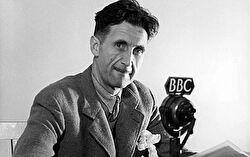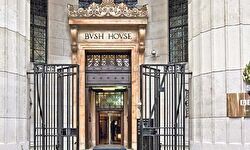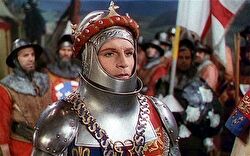
Brace yourself for a scoop, dear reader. The most famous petrolhead on the planet has accepted my invitation to Lunch with the FT.
Given the run of his dealings with the media, I am not surprised by Jeremy Clarkson's reticence. Talking drivel about him and his pals is a staple of the tabloids. Most recently, it’s been suggested that Clarkson demanded a helicopter be sent to fetch him some gravy and that Richard Hammond has been replaced in filming by a gimp in a face mask. Next, I imagine, someone will disclose that James May uses the Queen’s hairdresser.
But the FT, he said, was different, and our lunch wasn’t really an interview. Indeed, in the eyes of the yellow press, it probably doesn’t count as such, because I began by promising (not that he asked for it, or indeed made conditions of any kind — “You just go ahead and make it up,” he said when he saw my notebook) not to ask him about his private life.
“Seventeen seconds early!” he exclaimed, crashing into the room. “I hate being late — it’s saying, ‘My time’s more important than yours.’ And that’s rude.”
He had chosen Assaggi, an Italian restaurant above a pub in Notting Hill, for our meeting. It’s not cheap but Nino Sassu’s cooking is to die for: I have long thought it the best Italian food in London. The kitchen is tiny, the menu pretty unchanging apart from occasional specials: it was inevitable that the tieless man in worn-out jeans would go for the wild boar tagliatelle.
We both had a pear salad to start with, and a couple of glasses of wine apiece. I had vaguely wondered whether we’d end up on an afternoon pub crawl but he didn’t even finish his second glass. It was rosé, too, which was a bit of a shocker. No puddings: he was going to a curry-and-champagne party that evening thrown by one of Pink Floyd.
Nino produced some bits and pieces before lunch — pecorino, salami and what I thought was olive oil. It turned out to be honey, as Clarkson explained, having recently returned from a honey-tasting trip in Australia, which seems a very odd thing to have done.
No one gets to 55 without having made some decisions about their appearance. And Clarkson’s makes it clear he has decided to tell the world to piss off. In a medium obsessed with what you look like, he has chosen to dress as the understudy for Worzel Gummidge in a production at the Wimbledon theatre. In a wardrobe at home he has dozens of pairs of identical old jeans. Everyone on telly is a show-off, but Clarkson shows off by seeming to be normal.
I had happened to mention to a couple of senior BBC producers beforehand that I was lunching with Clarkson, and two individuals whom I had previously thought of as intelligent, friendly and quite sophisticated suddenly became a pair of spitting cobras. To them, Clarkson was pure pantomime enema. Is this a political thing or — they both happened to be women — a gender matter?
Because I simply cannot understand what there is to feel so bitter about. You don’t like him? Don’t listen to him. You don’t care about cars? I’m not interested in cars, either. But I do like to laugh. And Clarkson is funny. Very funny.
Maybe it’s the tone of some of his comments about cars. “Driving most supercars is like trying to manhandle a cow up a back staircase, but this [the Audi R8] is like smearing honey on Keira Knightley . . . The Ferrari F355 is like a quail’s egg dipped in celery salt and served in Julia Roberts’ belly button . . . Think of it [the Alfa Romeo Brera] as Angelina Jolie. You’ve heard she’s mad and eats nothing but wallpaper paste. But you would, wouldn’t you?”
Now, I couldn’t tell any of these cars from a Toyota Prius (which I imagine Clarkson loathes) but I can see the metaphors are less than entirely serious. The problem is that too much of the media and the media class have no sense of humour. Hence the weirdly symbiotic relationship between Clarkson and his critics: they invite him to play to a stereotype and, when he does so, they cane him for it.
Here are a few facts to set against the tabloid tramp. He has very good manners. He loves birds. He likes quite a few politicians. He believes British mainline trains are terrific. He can tell the difference between a mute swan and a whooper swan. He loves the London Eye and the Hoover Dam. He’s an accomplished deipnosophist. He co-owns a thousand-acre farm in the Cotswolds that stages the worst shoot in England.
He sometimes seems a bit deaf. He thinks Chuck Yeager, who broke the sound barrier, is “truly the worst human being I have ever met”. Kristin Scott Thomas sends him weak at the knees. He is an avid reader of the Mail Online’s Sidebar of Shame, despite claiming not to know who most of the people mentioned are. He’s good company, quick-witted and, actually, rather thoughtful.
The Ancient Guild of FT Lunchgivers obliges its members — on pain of a lifetime of gruel — to give an honest account of their conversation. I therefore confess that we debated whether the discrete shot at the end of Alien — when Sigourney Weaver slips out of her spacesuit — is the sexiest scene in film.
He protested that distinction belongs to Kristin Scott Thomas when she gets into the bath with Ralph Fiennes in The English Patient. This may be why meeting her so inflates his tongue that all he can do is to gurgle and dribble in her presence. I know the feeling: the same happened when I once met Gillian Anderson. Perhaps it’s to do with the beginning of senility.
For the apostle of laddism is now 55, and beginning to feel “the onset of disintegration”— creaky knees and the rest. His lifestyle is a heart surgeon’s bad dream: “I smoke huge numbers of cigarettes. If I’m awake, I’m smoking.” He thinks a little bit about retiring, but cannot contemplate disconnecting his laptop permanently. “I will always write. But then I don’t count writing as work. I look forward to a Thursday morning when I have to produce my Sunday Times column . . . In the time between turning on the laptop and sitting down ready to write, I’ve already got a thousand words. It takes me 20 minutes to write the column and then perhaps an hour polishing it.”
He is, in other words, a consummate hack who can be relied upon week after week to have something entertaining to say about something or other. Then all the words of wisdom get collected in a book — invariably adorned with the Clarkson physog on the front cover — and advertised on Tube escalators across central London. The books sell by the pallet-load.
So he has committed the cardinal British sin of being successful. If he really did abuse and thump a BBC Producer (it’s the subject of a lawsuit, so things are tricky to talk about), it’s clearly unacceptable — a perfectly natural urge that many of us have felt but managed to control, and he should have done so, too. But there was an unmistakable smell of glee in the commentariat, which went far beyond the alleged facts of the case.
It is hard to resist the suspicion that Clarkson’s real crime is to be too noisily male. Top Gear was apparently about cars. But the secret of the programme’s success wasn’t the internal combustion engine.
It could have been a fishing club or a bunch of blokes restoring steam locomotives. But it was as male as the Tranmere Rovers dressing room and you wanted to be part of their gang. But then came The Incident and out he had to go. Hammond and May walked out with him and now the three of them, producer Andy Wilman and a crowd of people with slightly less creaky joints are preparing another testosterone-fest to be aired by Amazon Prime next autumn. Four middle-aged blokes have crossed from Old Telly to New Telly.
It is, Clarkson said, too early to judge how different it will be to make a show about cars for an American corporation than it was to do something similar for the BBC. One can be fairly confident that the persistent suggestion that Mary Beard would be the perfect guest will stop. Contrary to caricature, he is rather affectionate about the BBC and spoke warmly of numerous figures in its senior management. But he’s enjoying freedom from the diktats of the corporation’s editorial policy department. (“Amazon’s on the internet, and people fuck horses on the internet, so anything less than that is bound to be all right.”)
“It’s unbelievably exciting to be getting cracking with it all,” he said of the new show. It has no name so far, though he claims they have ruled out Gear Knobs and House of Cars. In homage to Clarkson’s Yorkshire roots, the company that will produce the programmes has been named W Chump and Sons; “of London” has been added to the title “in case anyone thinks we’ve sold out to the Americans. Which we have, of course.” So serious business folk who want to be in on what looks set to be a roaring success will have to carry business cards bearing their name and rank in the hierarchy of, for example, “W Chump and Sons (mugs and T-shirts)”.
In the Doncaster of Clarkson’s youth there seemed to him to be only two types of car — Reliant Robins and Ladas. W Chump has already acquired a corporate fleet of Reliant Robins in attractive shades of cream and brown, from which bits fall off each day. “Yesterday was the first day that any of us completed a journey in his Reliant,” he boasted.
At present producers squat in a building off the Westway cold-calling people to ask if they’ll co-operate with three blokes making films for a nameless TV show produced by what sounds to be a firm of Dewsbury drain-clearers.
The newspapers claim Clarkson will earn £10m a year from the Amazon venture. The fascination lies in the chasm between that success and the fact that Clarkson and James May stop work each time Cash in the Atticcomes on television. But the Chump editorial guidelines are pretty straightforward — they look at a map of the world and say, “Not been there, I wonder what it’s like?”
The number of unvisited territories gets smaller by the year — “North Korea and Iran, basically.” It has given Clarkson a small boy’s boastfulness about the travel: “I can’t imagine anyone in the world flying more than I do. Terminal 5 ought to be my address.”
In his newspaper columns there’s something of the cabbie’s “don’t get me started, guv” rant — targets include political correctness, health and safety, caravans. That gets all the kale-eaters squealing, fearing this is how vast numbers of the proles think; though, periodically, someone says he should run for parliament. He claims to be unaligned, and loathes the idea of parliamentary whips (being compelled to vote for a policy). So, who did he vote for in the election? “Christ knows who I voted for. I drove three hours to Chipping Norton, where I’m registered, went into the polling booth and then discovered I hadn’t got my reading glasses. The only glasses I could borrow from anyone made things even worse. I wasn’t allowed to leave to go and buy a pair because I’d had my ballot paper, so I haven’t the faintest notion which way I voted.”
Jeremy Clarkson has no website, though his fans have created one that displays his Twitter stream, including such lapidary comments as the one on October 21 reading: “Fucking bastard fucking useless fucking WiFi.” The website itself seems to have been designed in 1927 and is adorned with a picture of our hero taken before he started shaving.
Clarkson (of course it’s just his surname, he’s that sort of bloke — like Flashman) once asked me to go on Top Gear as a “Star in a Reasonably-Priced Car” but, to the disappointment of my then young son, I couldn’t see the point in being filmed swearing and sweating and then spending an hour afterwards in an aircraft hangar that reeked of Brut aftershave. Another time, we were both team captains at a charity go-kart race in Milton Keynes. He killed me, mainly because each time I touched the brakes I found myself driving the wrong way around the track. Even so, I think he was beaten by Damon Hill. And perhaps by Delia Smith. And probably by Cilla Black, as well.
His lifetime behind the wheel began when, as a young reporter on the local newspaper in Rotherham, he met a contemporary from the Harrogate Advertiser behind the wheel of a car that cost as much as Rotherham council’s entire annual budget. The Harrogate lad explained how the racket worked: you said you wanted to review a car and, lo and behold, the manufacturers would deliver it to you, insured and full of fuel, for you to use, free, gratis and for nothing, for a week or two. All for a couple of paragraphs of copy.
When we left Assaggi there was an enormous orange sports car sitting in the street outside. “Ah, that’s the new Audi R8,” he said, as the man who had delivered it opened the door for him. He disappeared in a roaring raspberry at the Paris climate change talks. Vegetarians would doubtless make some disobliging comment about phallus substitutes. He doesn’t need one.
Jeremy Paxman is an FT contributing editor. Illustration by James Ferguson.



